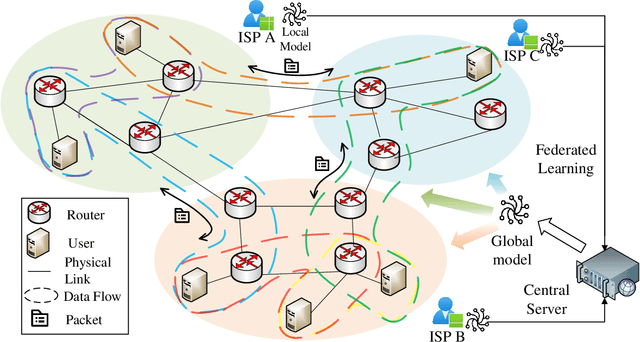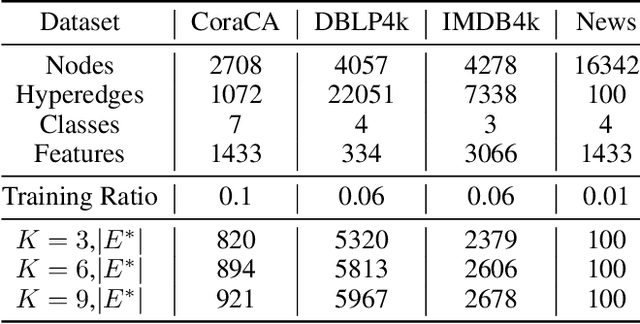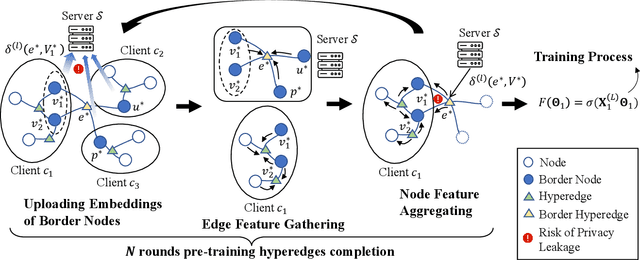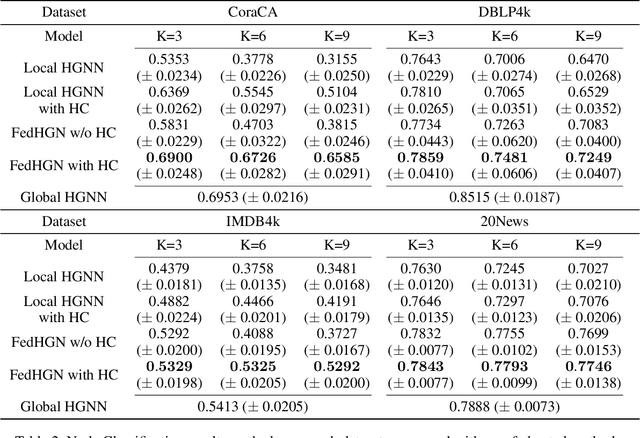Zihao Qiu
Federated Hypergraph Learning with Hyperedge Completion
Aug 09, 2024



Abstract:Hypergraph neural networks enhance conventional graph neural networks by capturing high-order relationships among nodes, which proves vital in data-rich environments where interactions are not merely pairwise. As data complexity and interconnectivity grow, it is common for graph-structured data to be split and stored in a distributed manner, underscoring the necessity of federated learning on subgraphs. In this work, we propose FedHGN, a novel algorithm for federated hypergraph learning. Our algorithm utilizes subgraphs of a hypergraph stored on distributed devices to train local HGNN models in a federated manner:by collaboratively developing an effective global HGNN model through sharing model parameters while preserving client privacy. Additionally, considering that hyperedges may span multiple clients, a pre-training step is employed before the training process in which cross-client hyperedge feature gathering is performed at the central server. In this way, the missing cross-client information can be supplemented from the central server during the node feature aggregation phase. Experimental results on seven real-world datasets confirm the effectiveness of our approach and demonstrate its performance advantages over traditional federated graph learning methods.
Provable Stochastic Optimization for Global Contrastive Learning: Small Batch Does Not Harm Performance
Feb 24, 2022



Abstract:In this paper, we study contrastive learning from an optimization perspective, aiming to analyze and address a fundamental issue of existing contrastive learning methods that either rely on a large batch size or a large dictionary. We consider a global objective for contrastive learning, which contrasts each positive pair with all negative pairs for an anchor point. From the optimization perspective, we explain why existing methods such as SimCLR requires a large batch size in order to achieve a satisfactory result. In order to remove such requirement, we propose a memory-efficient Stochastic Optimization algorithm for solving the Global objective of Contrastive Learning of Representations, named SogCLR. We show that its optimization error is negligible under a reasonable condition after a sufficient number of iterations or is diminishing for a slightly different global contrastive objective. Empirically, we demonstrate that on ImageNet with a batch size 256, SogCLR achieves a performance of 69.4% for top-1 linear evaluation accuracy using ResNet-50, which is on par with SimCLR (69.3%) with a large batch size 8,192. We also attempt to show that the proposed optimization technique is generic and can be applied to solving other contrastive losses, e.g., two-way contrastive losses for bimodal contrastive learning.
 Add to Chrome
Add to Chrome Add to Firefox
Add to Firefox Add to Edge
Add to Edge